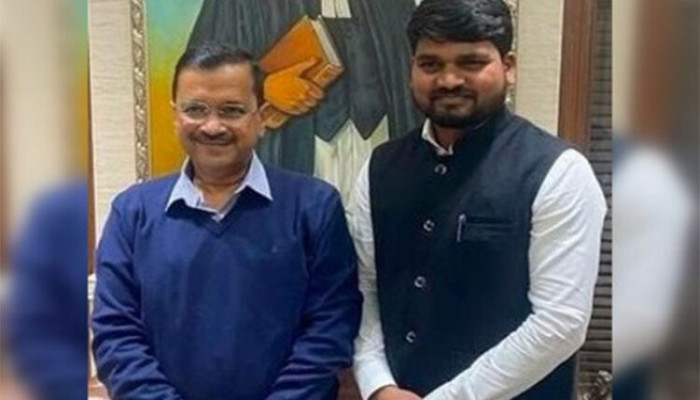AAP MLA Chaitar Vasava demands separate ‘Bhil Pradesh’ for tribals
- In Reports
- 09:40 PM, Apr 05, 2023
- Myind Staff
On April 4, Aam Aadmi Party (AAP) MLA Chaitar Vasava demanded a separate state for the tribal population in Gujarat and three neighbouring states called ‘Bhil Pradesh.’
Chaitar Vasava is a first time MLA from the Scheduled Tribes reserved Dediapada seat in Gujarat's Narmada district.
Vasava claims that the state of Bhil Pradesh for the tribal community is divided among Gujarat, Madhya Pradesh, Maharashtra, and Rajasthan. He plans to appeal to the President, Droupadi Murmu, about this demand.
He said, “History tells us that there was a separate state called Bhil Pradesh. But after independence that state was divided and its parts were merged into different states such as Gujarat, Rajasthan, Madhya Pradesh, and Maharashtra,” speaking to reporters.
Chaitar Vasava claimed that the rights of tribal people were being snatched away. He claimed that in the Kevadia area of Gujarat’s Narmada district, thousands of acres of tribal land were given away to others for various projects.
He said, “as a result, tribals of the area, who were the real owners of the land, are now reduced to working as labourers for Rs 280 per day. Since our rights on our Jal, Jungle and Jamin (water, forest and land) are being snatched away, we are again raising this demand for a separate Bhil Pradesh,” he added.
According to Vasava, the culture, customs, and lifestyle of the tribal people are being threatened, and their lands are being taken away by outsiders. He believes that having a separate Bhil Pradesh would enable the development of the tribal community and result in the appointment of a tribal chief minister and cabinet ministers.
Responding to Chaitar Vasava’s demands, Bharatiya Janata Party (BJP) MP and tribal leader Mansukh Vasava said that Chaitar Vasava’s demand would create anarchy and friction between the tribal communities and non-tribal communities. He said, “this demand will create anarchy in many areas. It will also create friction between tribals and non-tribals, which will eventually affect the implementation of development projects in tribal areas.”
Image source: Twitter







Comments